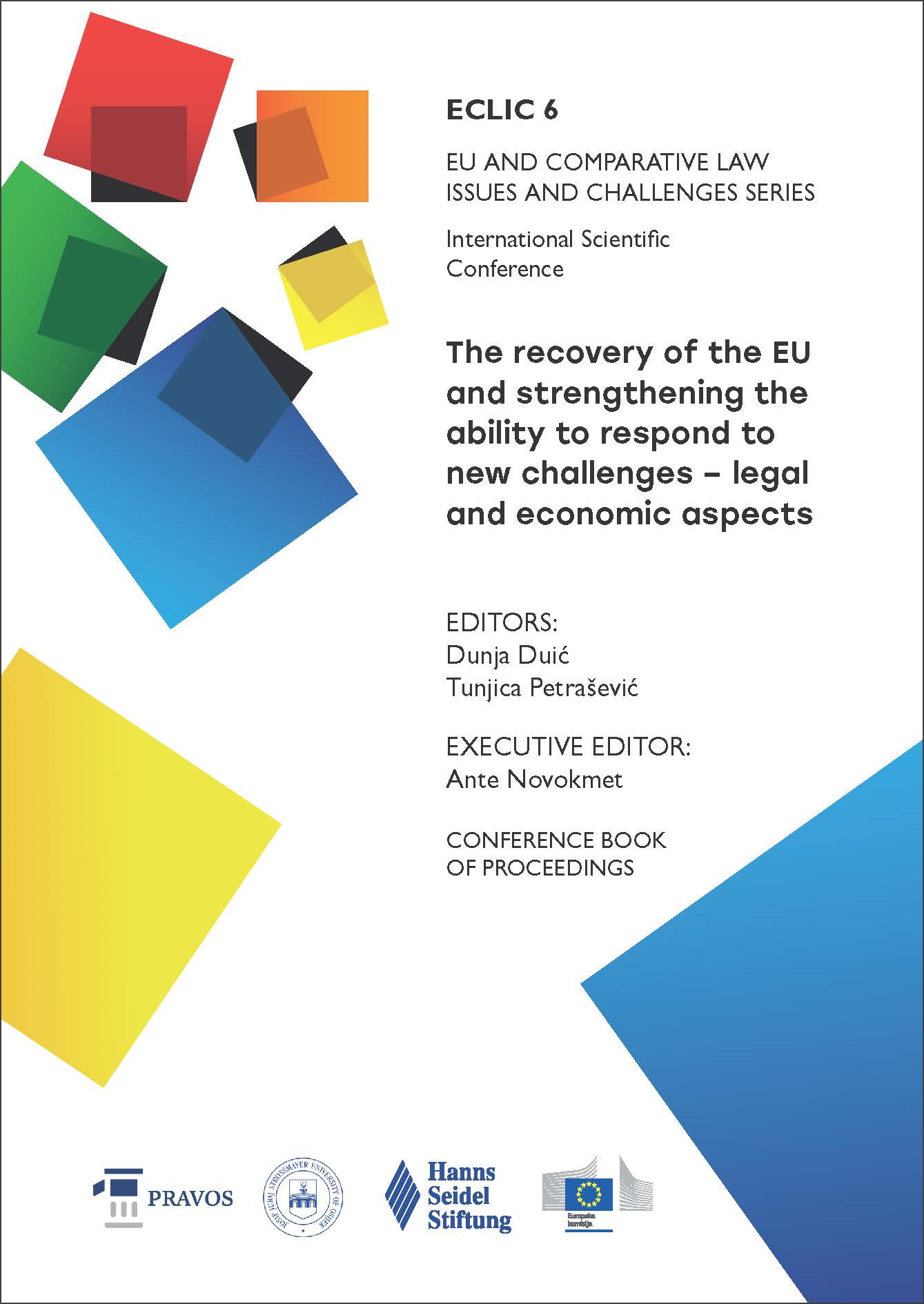WILL THE IMPLEMENTATION OF THE DIRECTIVE ON RESTRUCTURING AND INSOLVENCY HELP THE RECOVERY OF THE CROATIAN MARKETS AND STRENGTH THE ABILITY OF THE DEBTORS TO RESPOND TO NEW CHALLENGES?
DOI:
https://doi.org/10.25234/eclic/22409Abstract
It must be pointed out that the issue of bankruptcy proceedings in countries with a long market tradition is a dynamic area where new solutions are sought that will follow the trend of change in the international economy. The European Union, which in 2019 adopted the Restructuring and Insolvency Directive, is also making an exceptional contribution to this issue. With the adoption of the Directive, the European Union has joined the general trend of deviation from traditional, formal bankruptcy proceedings by opening a wide area to private regulation, with all the associated opportunities and risks. From the current point of view of Croatian law, the Directive does not provide “revolutionary” solutions, especially in terms of preventive restructuring, given that Croatian rules on prebankruptcy proceedings are essentially in line with the solutions contained in the Directive. Therefore, the subject of the analysis are valid norms as well as those from the Final Proposal of the Bankruptcy Law from 2022 (February 2022) related to collective legal protection in (pre) bankruptcy proceedings, having in mind the possible consequences of incomplete and inadequate regulation on the rights and interests of participants. The analysis starts from the fact that the issue of legal protection is regulated by each state independently and that such autonomy of member states is limited by EU rules. Therefore, in addition to the legal analysis of legal protection, as it is according to the existing (valid) legal framework (de lege lata), this paper also includes the question of what such protection should be in view of the requirements of European law (de lege ferenda). A limiting factor in the context of this analysis is the lack of well-established judicial practice, given that the implementation of new legislation is in process of public debate. Therefore, the analysis is not based on practical problems, but on detecting possible problems that could cause difficulties in practical implementation of (pre)bankruptcy proceedings.
Downloads
Published
How to Cite
Issue
Section
License
Copyright (c) 2022 Dejan Bodul

This work is licensed under a Creative Commons Attribution-NonCommercial 4.0 International License.
Authors retain the copyright on the papers published in the Journal, but grant the right of first publication to the Journal. Papers accepted for publication or already published in ECLIC of the Faculty of Law in Osijek may be published by the author(s) in other publications only with proper notice of its previous publication in ECLIC.


